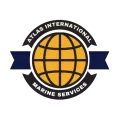
In today’s interconnected world, communication plays a vital role in every industry, including the maritime sector.
With vast expanses of open water and vessels traversing the globe, maintaining reliable and efficient connectivity at sea is paramount.
Maritime satellite communications, a technology that has revolutionized the way ships communicate, ensuring seamless connectivity and enhancing safety, efficiency, and crew welfare.
In this blog post, we will explore the pivotal role of maritime satellite communications in bridging the communication gap at sea.
Enabling Global Connectivity
Maritime satellite communications have eliminated the barriers of distance and remoteness, enabling ships to establish communication links regardless of their location on the high seas.
Satellites orbiting above the Earth act as relays, transmitting and receiving data, voice, and video signals, providing uninterrupted connectivity for maritime vessels.
Enhancing Safety and Security
Effective communication is crucial for ensuring the safety and security of vessels at sea.
They enable real-time monitoring of ships, allowing for swift response in case of emergencies, such as distress signals or piracy incidents.
Crew members can communicate with maritime authorities, share critical information, and receive necessary assistance promptly.
Facilitating Efficient Operations
Efficiency is key in the maritime industry, and satellite communications play a pivotal role in streamlining operations.
Ships can access weather reports, navigational charts, and up-to-date information on port conditions, optimizing route planning and minimizing risks.
Crew members can communicate with onshore teams, coordinating logistics, and ensuring smooth cargo handling and delivery.
Crew Welfare and Connectivity
A crucial aspect of maritime satellite communications is its impact on the welfare of seafarers.
Being away from loved ones for extended periods can be challenging, but satellite communications provide a lifeline for crew members to stay connected with their families and friends.
Video calls, messaging apps, and internet access allow seafarers to bridge the gap between the ship and the shore, boosting morale and mental well-being.
Improving Decision-Making and Collaboration
Access to real-time data and information through satellite communications enables efficient decision-making onboard.
Captains and crew members can collaborate with onshore teams, exchanging critical updates, and making informed choices regarding navigation, vessel maintenance, and cargo operations.
This seamless flow of information enhances operational efficiency and reduces downtime.
Future Trends and Advancements
The future of maritime satellite communications looks promising, with continuous advancements in technology.
High-throughput satellites, improved antennas, and increased bandwidth are on the horizon, promising faster and more reliable connectivity.
Additionally, the integration of satellite communications with other emerging technologies, such as AI and the Internet of Things (IoT), holds immense potential for further enhancing connectivity.
Final Thoughts
Maritime satellite communications have transformed the way ships communicate, revolutionizing the maritime industry.
From enabling global connectivity and enhancing safety to streamlining operations and improving crew welfare, this technology has become an indispensable tool for modern seafaring.
As technology continues to evolve, maritime satellite communications will play an increasingly pivotal role in connecting the high seas, fostering efficiency, safety, and connectivity in this vital industry.
Found this article interesting, and useful? Please feel free to interact, recommend and share.
If you have any questions about this topic or would like to discuss your own business needs, please contact us today!
